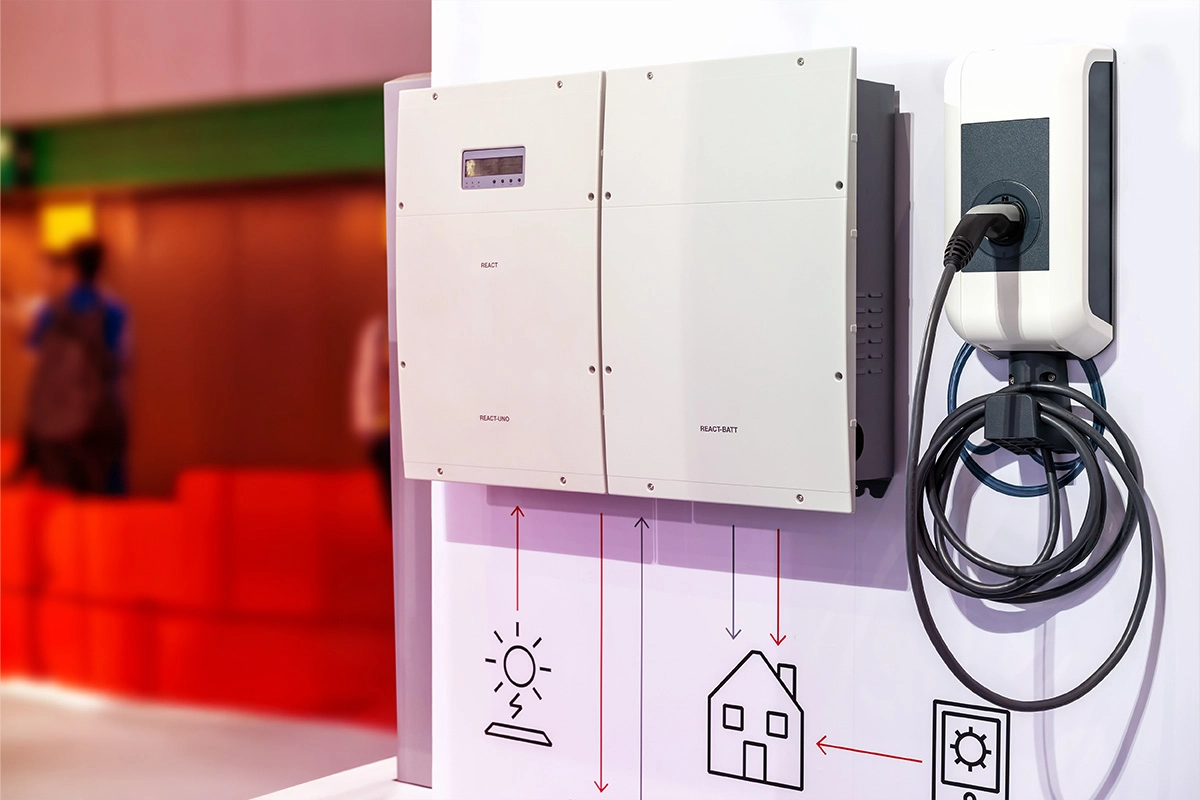
What is the Inverter? What is the Function of an Inverter?
What is in this article?
Despite your air conditioner or refrigerator running all day, one of the main reasons your electricity bill doesn’t rise significantly is this technology. Indeed, the same technology also allows the machines at your workplace to adjust their energy consumption based on demand. Yes, as you might have guessed, we’re talking about inverter technology. Inverter technology, which enables users to meet their ever-growing energy needs without extra costs while being environmentally and budget-friendly, is known for its low energy consumption, higher efficiency, and significant long-term savings.
Curious to learn more about inverter technology, the key to a sustainable future? If you’re wondering, “What exactly is an inverter, and how does it make our lives easier?” then you’ve come to the right spot.
What is the Inverter? Basic Working Principle
At its most basic, an inverter is a device that converts electrical energy. An inverter transforms a fixed direct current (DC) into a variable alternating current (AC), primarily to regulate the speed of motorized devices and optimize energy consumption. Unlike traditional systems, inverter systems adjust energy usage based on demand, increasing efficiency and enabling cost savings.
The core principle of an inverter system is controlling the motor’s speed. Traditional electric motors run at a fixed speed and usually operate at full power. However, in many cases, devices don’t actually require that much energy. There is where the inverter comes in, adjusting the motors speed based on demand to improve energy efficiency. For example, an air conditioner with inverter technology can regulate compressor speed according to room temperature, reducing energy consumption while extending the device’s lifespan.
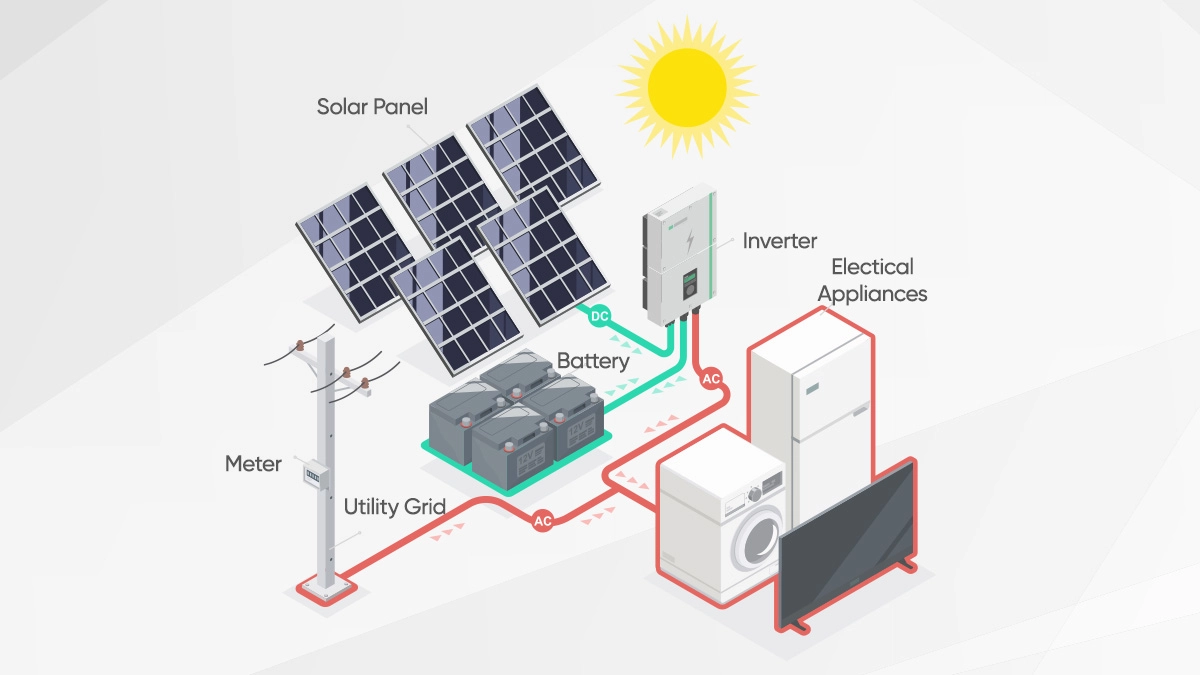
Areas Of Use For Inverter Technology
When it comes to the applications of inverter technology, you might initially think of a few devices, but its scope is much broader than you might realize. Because, inverter systems are widely used in both residential and commercial settings. With their capabilities, energy management can be done more intelligently in homes, offices, and even large industrial facilities. At this point, its helpful to look at a few examples:
Residential Use: Inverter technology is commonly used in household appliances like air conditioners, refrigerators and washing machines. Air conditioners, in particular, benefit from inverter technology, allowing them to adjust more precisely to room temperature and optimize energy consumption.
Commercial Use: Large scale cooling and ventilation systems in restaurants, hotels, and offices can achieve significant savings with inverter technology. For example, a hotels central cooling system only uses the amount of energy it needs, thanks to inverters.
Industrial Use: In factories, inverter technology is applied to production machines, motors, and pumping systems to control energy usage. This helps reduce production costs and promotes a more environmentally friendly approach.
Renewable Energy Systems: The electricity generated by solar panels and wind turbines is usually in direct current (DC) form. Inverter systems step in to convert this energy into a usable format for everyday applications; in fact, they are considered an essential part of renewable energy systems.
Advantages and Benefits of Inverter Systems
The advantages offered by inverter technology have made it one of the most effective solutions for improving energy efficiency. Not only does it reduce energy consumption, but it also lowers environmental impact and extends the lifespan of devices. Here are some key benefits of this system:
Energy Savings: Inverter technology ensures that only the necessary amount of energy is consumed, resulting in substantial savings for devices that run continuously. For instance, an inverter air conditioner consumes significantly less energy compared to a conventional unit.
Longer Device Lifespan: By preventing devices from running at a fixed speed all the time, inverter technology helps minimize wear and tear. As a result, appliances can operate efficiently for a longer period.
Quiet Operation: Devices equipped with inverter technology produce less noise during operation. This is especially beneficial for household appliances like air conditioners and refrigerators, which fully benefits from this feature.
Eco-Friendly: As you know, using less energy means producing fewer carbon emissions. Inverter technology helps promote a more environmentally conscious way of living.
High Performance: Inverter technology enable devices to respond more quickly to changes in demand, optimizing performance. This is especially useful in applications where precise temperature control is essential.
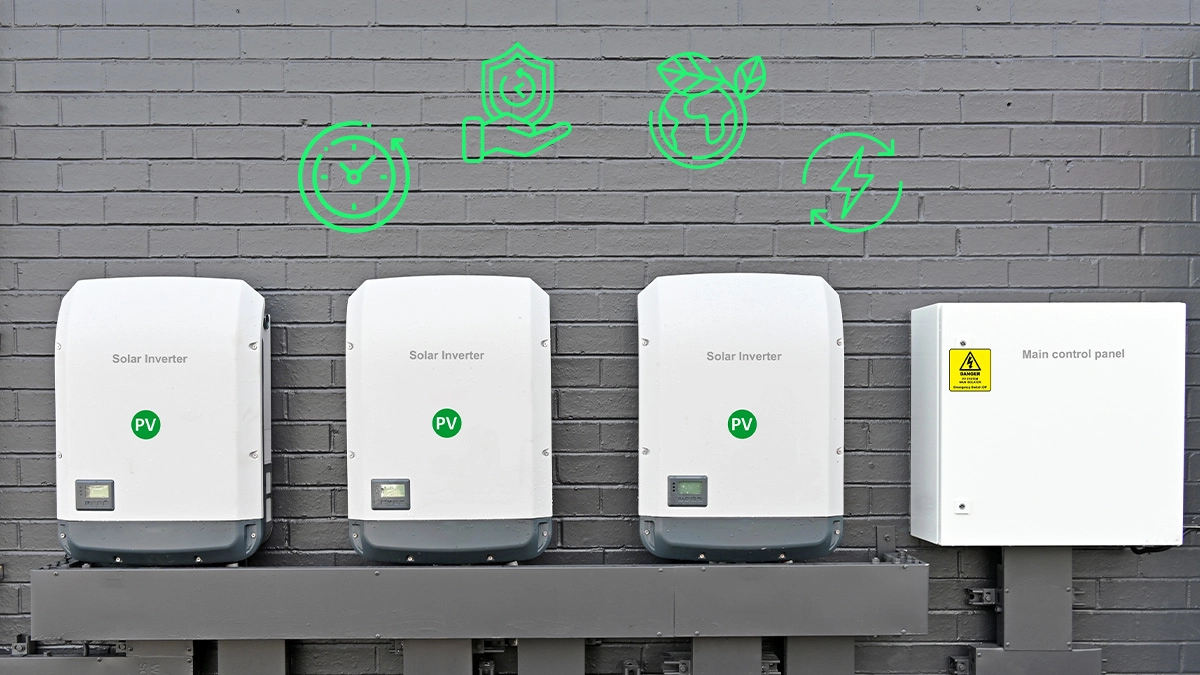 Types and Features of Inverters
Types and Features of Inverters
There are several types of inverters on the market, each designed to meet different needs. Inverters can be classified based on factors such as their operating principle, power capacity, application area, and technological features. Inverter types can be evaluated in four categories:
- Standard Inverters: Designed for basic needs, these inverters are typically used in small household devices. Inverter air conditioners and refrigerators fall into this category.
- Industrial Inverters: With higher power capacities, these inverters are used in motor systems within factories and large industrial operations.
- Solar Inverters: Commonly used in renewable energy systems, solar inverters convert energy produced by solar panels and wind turbines into usable power.
- Hybrid Inverters: These inverter systems support both grid electricity and renewable energy sources, providing efficient energy management.
Each inverter type has its own unique features, so choosing the right inverter for your specific needs is key.
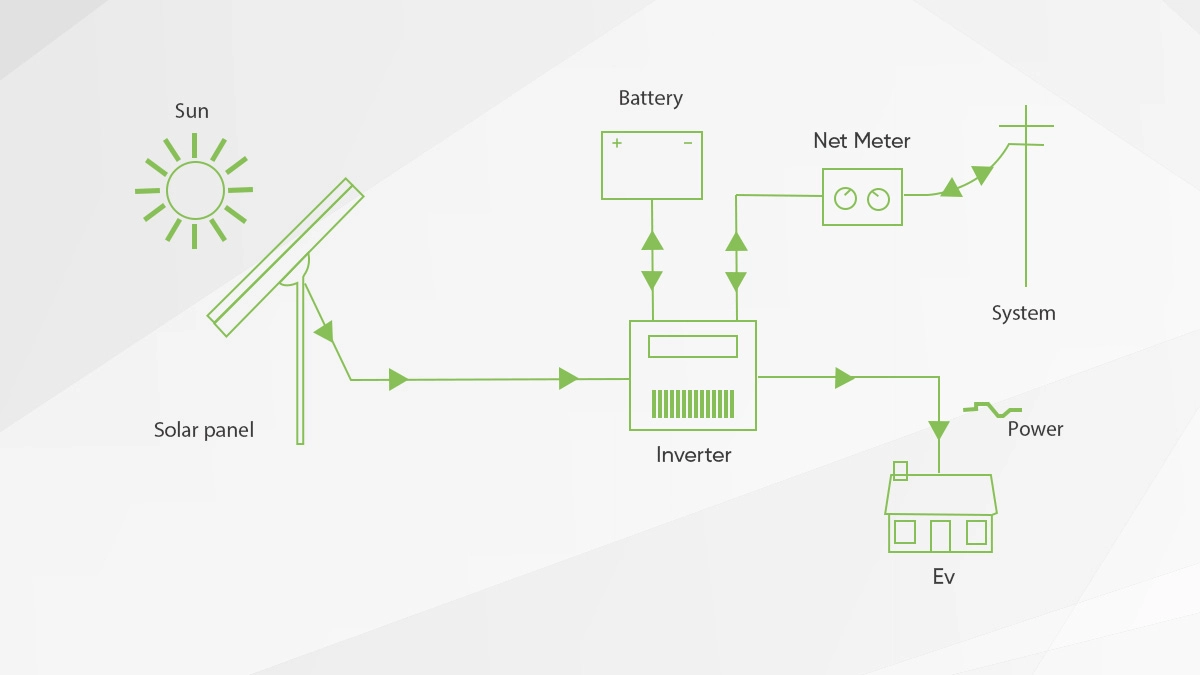 Energy Efficiency and Inverter Technology
Energy Efficiency and Inverter Technology
Considering the growing energy demand, limited energy resources, and the climate crisis, it has become crucial to use energy more efficiently, both for economic and environmental reasons. At this point, inverter technology continues to stand out as one of the most effective and innovative solutions for enhancing energy efficiency. As previously mentioned, one of the primary benefits of inverter systems is their ability to optimize energy consumption in devices that run continuously. Traditional systems typically run at a fixed speed, consuming more energy than necessary. Unlike traditional systems, inverters regulate a devices speed and energy use according to actual needs, helping to eliminate wasted energy. This feature sets inverter technology apart from other energy management methods.
Many countries are prioritizing the use of energy-friendly technologies, like inverter systems to promote energy savings and reduce carbon emissions. For example, in the European Union, when energy classifications are made, devices with inverter technology are rated in higher energy efficiency categories and recommended to consumers. This also helps to achieve environmental sustainability goals.
The contribution of inverter technology to energy efficiency is not limited to individual devices. In industrial sectors, systems such as motors, pumps, and production machines can achieve significant energy savings with the help of inverters. For example, motors with inverter technology in a factory optimize speed and power based on the production lines needs, reducing both energy consumption and operating costs.
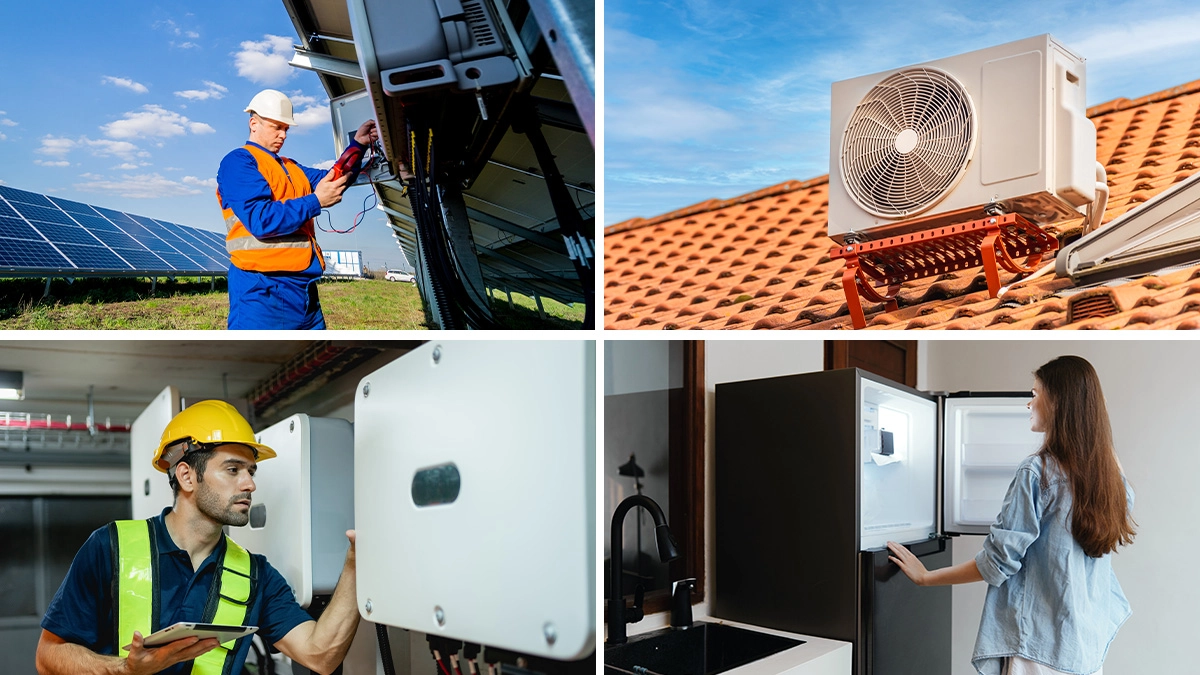 Key Considerations When Choosing an Inverter
Key Considerations When Choosing an Inverter
Selecting the right inverter is critical for both energy efficiency and enhancing device performance. Choosing the appropriate inverter for the application areas requires paying attention to the key factors. At the top of the list is capacity. For instance, installing a high-capacity inverter in a small house could result in unnecessary costs. Additionally, brand reputation and product quality are key considerations. Products from trusted brands usually show better durability while operating more effectively. The production year and system generation must be taken into account since newer inverters usually include modern features such as smart controls and remote management capabilities. Finally, warranty coverage and technical support are essential for ensuring the long-term use of inverter systems, both for individuals and businesses.
You can also optimize your energy consumption by familiarizing yourself with this technology and contribute to a more sustainable future through the savings opportunities provided by inverters. Inverter technology is making a difference in various areas, from reducing energy costs for businesses to contributing to environmental sustainability.
By following our blog, you can stay updated on the latest developments in energy efficiency. Additionally, you can share your comments and thoughts on our article with us.

 Online Services
Online Services Application Inquiry
Application Inquiry Pay Assurance Fee
Pay Assurance Fee Query Installation Number
Query Installation Number Compensation Fee Inquiry
Compensation Fee Inquiry Automatic Payment Order Inquiry
Automatic Payment Order Inquiry Partnership
Partnership
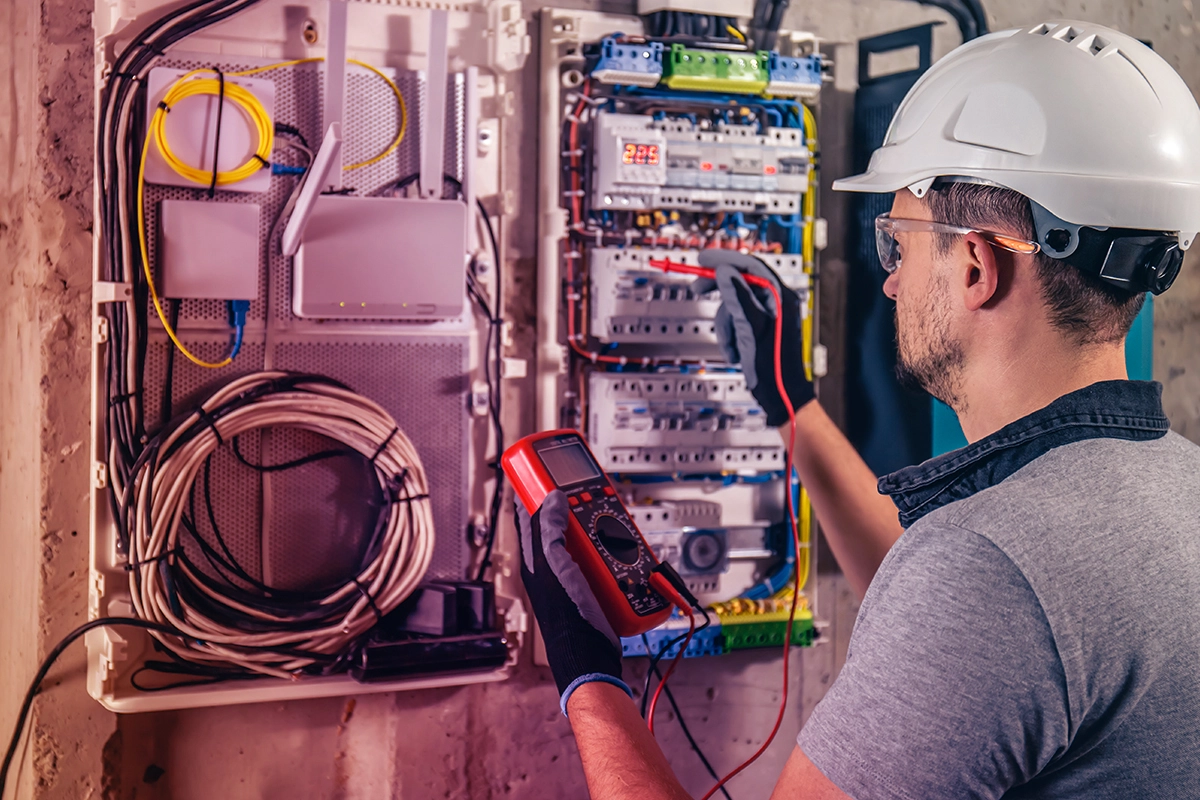


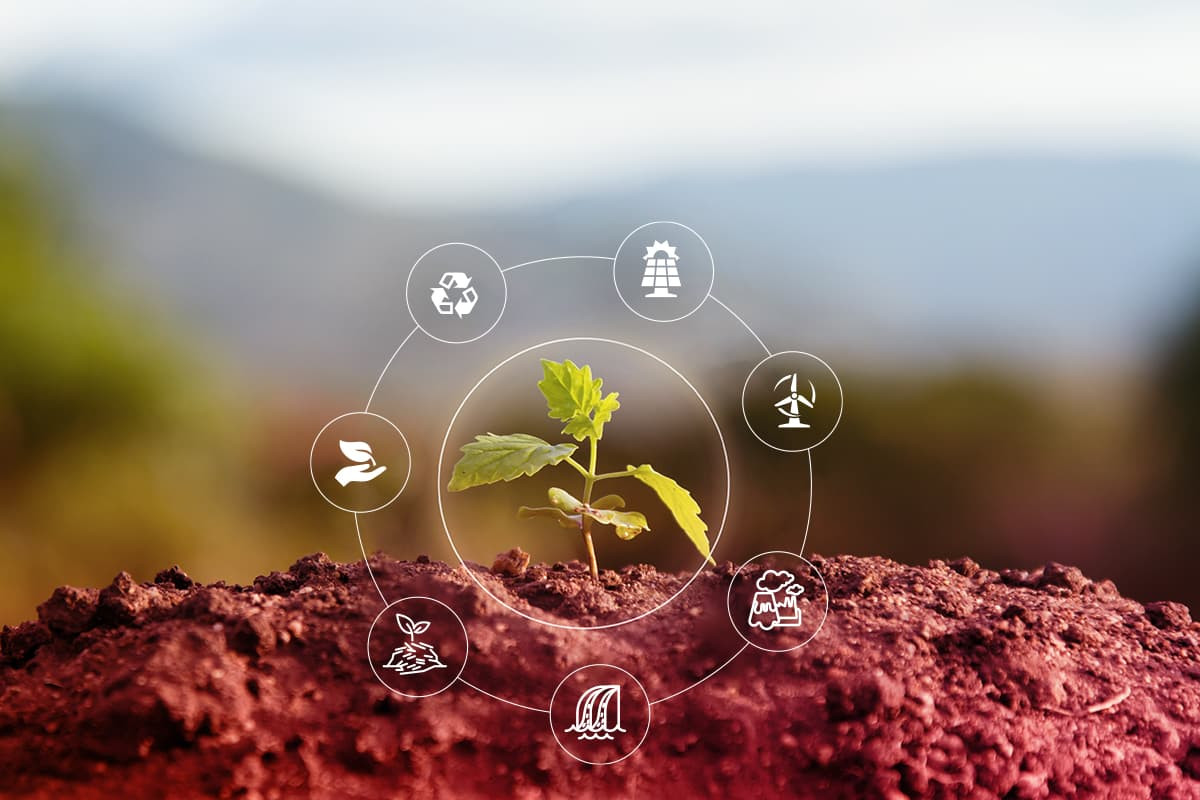


Leave a Comment